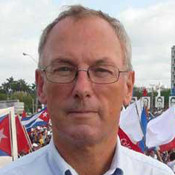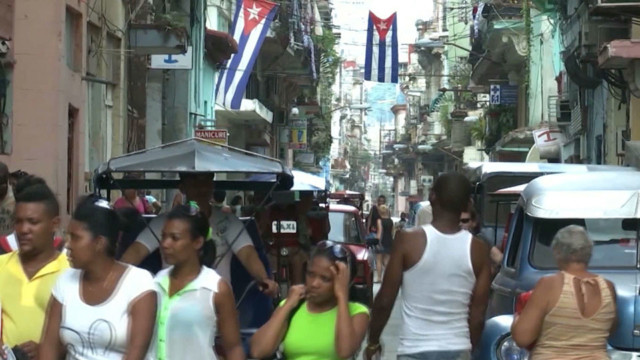Cuba is preparing for a historic transfer of power as it deals with the consequences of a shifting international landscape.
CGTN’s Michael Voss looks at the changes – and challenges – Cuba will face in 2018.
Most Cubans were born after the revolution and have only known a Castro as head of state. That’s about to change in April 2018 when 86-year-old Raul Castro steps down as president.
Fifty-seven year old First Vice President Miguel Diaz-Canel is the likely successor. He faces a number of challenges – not least the island’s struggling economy.
Cuba can no longer rely on its ally Venezuela to help meet its energy needs with subsidized oil. Economic reforms appear to have stalled with new restrictions on the emerging private sector.
“Cuba needs foreign investment,” said Omar Everleny, an economist. “I think this is the main challenge. Because everything they want to do will cost money. Cuba needs to speed up the approvals of foreign capital and to learn from the experience of China and Vietnam.”
Another challenge facing Cuba’s next president will be how to handle the deteriorating relations with the United States under President Donald Trump.
The optimism generated by the re-establishment of diplomatic relations under former President Barack Obama has gone.
Josefina Vidal is Cuba’s chief negotiator with the United States, and in an exclusive interview, told CGTN about the changes.
“After a lot of progress, there has been a significant setback, and this is unfortunate,” she said.
When asked how President Trump’s policies have affected Cuba, she said “the new measures have added obstacles concerning the embargo in Cuba, because they have affected travel to Cuba, and they have affected business opportunities between American companies and Cuban companies.”
“Cubans are not able now to secure visas to go to the United States to visit family or emigrate or participate in academic, educational and scientific exchanges.”
2018 will mark a major generational change at the top in Cuba, though Raul Castro will stay on as head of the Communist Party, so the transition in terms of policy changes could take more time.
 CGTN America
CGTN America

